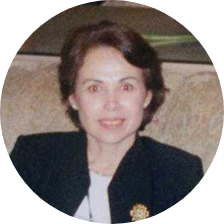Welcome to IMAACA 2021!
Dear Sir/Madam,
innovations and improvements are required to react quickly to the new trends of the global economy. Over the years, Modeling & Simulation (M&S) has proved to be one of the most effective, beneficial and successful methodologies to investigate and study complex systems belonging to various sectors/areas. Nevertheless, to take full advantage of this technology there are relevant issues that keep challenging the researchers towards even more advanced solutions and approaches where emerging and cutting-edge technologies are absorbed into. M&S is widely and successfully applied in many application domains, ranging from industry to social sciences, from logistics to military, from energy to healthcare; in this sense M&S provides a multidisciplinary perspective where theory and data from different fields can be used to build models and simulations that provide insights in to the system considered.
The 2021 International Conference On Integrated Modeling And Analysis in Applied Control And Automation (IMAACA) will be a platform for knowledge exchange, the review and discussion of theoretical advances, research results, and industrial experiences, among scientists, researchers, decision makers, practitioners and students dealing with the topics under the umbrella of multidisciplinary modeling & simulation.
Therefore, we would like to kindly invite you to take an active part in this conference and in the co-located events that will be held at Krakow, Poland on September 15-17, 2021 and explore with us the latest news, views and developments in the exciting world of multidisciplinary modeling & simulation.
Sincerely,
I3M 2021 Organization Committee

Topics & Tracks
Authors are kindly invited to include in their papers and presentations all the research works, case studies and application both theoretical and applied. Topics of interests include the following topics, however different ones concerning Modeling & Simulation in Industry are welcome.
- Topics
- Continuous and Hybrid Systems
- Lumped and Distributed Parameter Systems
- Switched Systems
- Qualitative Modeling
- Bond Graph Modeling
- Mathematical Modeling and Numerical Methods
- Neural Networks
- Fuzzy Systems
- Nonlinear Systems
- Large Scale Systems
- Order Reduction and Model Simplification
- System Identification
- Adaptive Control
- Expert Systems
- Industrial Applications of Advanced Control
- Intelligent Control
- Multivariable Control
- Nonlinear Control
- Robust Control
- Networked Control Systems
- Fault Detection
- Process Supervision
- Software and Tools
- CAD
- Education
- Applications
- Aero and Astro
- Agroindustries
- Automation
- Biomechanics
- Prosthetics and Biomedical Engineering
- Car Industry
- Chemical Engineering and Process Control
- Electrical and Power Systems
- Distributed Generation and Electrical Microgrids
- Smart Grids
- Environmental Systems
- Food Industry
- Integrated Manufacturing
- Marine and Off-Shore Control
- Mechatronics, Production Industry
- Power Electronic Systems
- Robotics & Mechanical Systems
- Textile Industry
- Transportation Systems
Tracks
Chair: Daniel E. Viassolo
Affiliation: Schlumberger, USA
Track Description: It is nowadays possible and affordable to deploy complex workflows dedicated to collect asset data, detect anomalies, and estimate remaining useful life to optimize asset maintenance. Machine Learning plays a major role in such involved workflows, leveraging the tremendous amounts of data generated by IoT sensors, maintenance systems and operating systems. It is fair to state that the availability of affordable computing power, massive data storage and low-cost sensors, initiated a revolution in condition-based maintenance. Companies across the board have taken bold steps in implementing condition-based asset maintenance schemes as they quickly became aware of the tremendous benefits they can bring to their bottom lines. This invited session solicits contributions describing applications of advanced Machine Learning, Big Data, Cloud Computing, and Artificial Intelligence in general to the maintenance of industrial assets. Appropriate technologies for session topics include (but are not limited to):
- Image analytics.
- Aggregation of offline (non-realtime) and online methods.
- Hybrid Models (data-based, physics-based).
- Deep Learning.
- Natural Language Processing.
- Auto ML.
- RPA – Robotic Process Automation.
Submit an Open Track Proposal
Key Dates
Paper Submission Deadlines
- Special Session/Open Track Proposal Closure: April 15th, 2021
-
Draft Paper Submission Deadline:
April 15st, 2021May 15th, 2021 -
Notification of Acceptance & Review Reports:
May 15st, 2021June 15th, 2021 -
Camera-ready Paper Submission Deadline:
June 15st, 2021July 15th, 2021
Registration Deadlines
- Early Bird Registration Closure: July 1st, 2021
- Late Registration Closure: September 13th, 2021
Committees
IMAACA 2021 Organization Board

Sergio Junco
IMAACA General Chair
Universidad Nacional de Rosario, Argentina

Loucas Louca
IMAACA Program Chair
University of Cyprus, Cyprus

Geneviève Dauphin-Tanguy
IMAACA Honorary Chair
France
IMAACA 2021 Organization Staff
Agostino G. Bruzzone – University of Genoa, Italy
Alessandro Chiurco – DIMEG, University of Calabria, Italy
Virginia D’Augusta – DIMEG, University of Calabria, Italy
Jessica Frangella – DIMEG, University of Calabria, Italy
Caterina Fusto – DIMEG, University of Calabria, Italy
Lucia Gazzaneo – DIMEG, University of Calabria, Italy
Luca Giansiracusa – CAL-TEK S.r.l., Italy
Francesco Longo – University of Calabria, Italy
Marina Massei – Liophant Simulation, Italy
Letizia Nicoletti – CAL-TEK S.r.l., Italy
Mohaiad Osman Elbasheer – MSC-LES, University of Calabria, Italy
Antonio Padovano – University of Calabria, Italy
Cataldo Russo – CAL-TEK S.r.l., Italy
Simone Talarico – DIMEG, University of Calabria, Italy
Marco Vetrano – CAL-TEK S.r.l., Italy
Kirill Sinelshchikov – Simulation Team, Italy
IMAACA 2021 International Program Committee
Jorge Baliño – University of São Paulo, Brazil
Wolfgang Borutzky – BRS-University, Germany
Mauro Carignano – UNR, Rosario, Argentina
Nicolaï Christov – LAGIS, UST Lille, France
Jean-Yves Dieulot – Polytech’Lille, France
Alejandro Donaire – QUT, Australia
Tulga Ersal – University of Michigan, USA
Vladimir Turetsky – ORT Braude College · Department of Mathematics, Israel
Adrian Ilinca – U. du Québec à Rimouski, Canada
Jean-Marc Mercantini – Aix-Marseille University, France
Fabrizio Leonardi – FEI, Brazil
Francesco Longo – University of Calabria, Italy
Aziz Naamane – Laboratoire d’Informatique et Systèmes (LIS), France
Matías Nacusse – FCEIA, UNR, Argentina
Rachid Outbib – LSIS, Marseille, France
Pushparaj Mani Pathak – IIT, Roorkee, India
Ricardo Pérez Correa – PUC, Chile
Mónica Romero – FCEIA, UNR, Rosario, Argentina
Christophe Sueur – Centrale Lille, France
Armand Toguyeni – Centrale Lille, France
Costas Tzafestas – NTUA, Greece
Jorge Vega – CIESE (UTN-FRSF) and INTEC (CONICET-UNL), Argentina
Daniel Viassolo – Schlumberger, Houston, TX, USA
Belkacem Ould-Bouamama – Polytech Lille, France
Aníbal Zanini – Fac. de Ingeniería, UBA, Argentina
Norberto Nigro – CIMEC, UNL, S. Fe, Argentina
Get on board the team now!
Are you willing to join the Organization Committee or the International Program Committee? Discover the benefits and opportunities now and submit your proposal.
Organized by

For further info, please contact